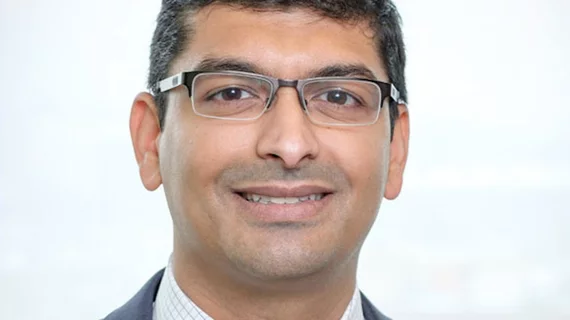Cardiologist leaves Amazon leadership role to join digital health startup
Cardiologist Maulik Majmudar, MD, has left his position as a medical officer at Amazon to join Biofourmis, a Boston-based digital health startup focused on AI and virtual care technologies.
Majmudar will serve as the chief medical officer at Biofourmis. He’s been on the company’s clinical advisory board since 2015 and on its board of directors since 2019.
Majmudar was with Amazon for nearly three years, working on multiple healthcare products and leading the development of the Amazon Halo membership service. Before Amazon, he helped manage the Healthcare Transformation Lab at Massachusetts General Hospital and served as an associate professor at Harvard Medical School.
“Our vision is to become the most comprehensive and tightly integrated care-at-home platform across a range of patient acuity levels and medical conditions,” Majmudar said in a prepared statement. “As we expand our offerings to including in-home provider services, we will continue to demonstrate the value of our solution through improved outcomes that support both providers and insurers in value-based care arrangements that include shared risk.”
“Maulik has been a trusted advisor, colleague and friend for many years, which is why I am thrilled that he will guide the product and clinical vision of Biofourmis as we begin a new phase of our growth,” added Kuldeep Singh Rajput, Biofourmis founder and CEO. “Maulik's extensive experience in digital health, as well as his time at Amazon learning about product development, organizational culture and their renowned customer-centric philosophy, will be invaluable assets as it relates to our strategic roadmap and continued worldwide commercial expansion.”

